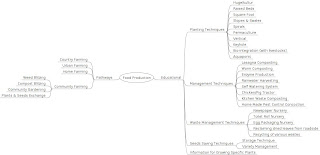Today, we heard that one of our planned recipient is experiencing symptoms of depression, such as self harm and feeling of fear and panic. So, we have to push forward with our fund raiser, hopefully able to catch enough support for us to make it work.
Target of raising RM 3,000:- To provide starter stock for 2 underprivileged people to sell to help them along an enterprising journey, or at least supplement their living expenses--> Person 1: systematically underpaid for 2 years, oppressed and deprived of learning and growth opportunities, experienced unfair treatment and salary deduction, and depression
--> Person 2: made a few wrong property investment decisions quite late in life, unable to earn liveable income, yet having a family to feed.
- To provide starter stock for Eua Euosmia to grow and fund Appreciating Value of Fair Treatment (AVOFT) through the implementing inclusive and supportive measures in businesses, such as this:https://www.facebook.com/avoft/posts/1696228240389659
- To help Eua Euosmia upgrade from screw cap bottles to pump bottles
- To help Eua Euosmia upgrade product to include extra antioxidants for extra health benefits and shelf life
Expected delivery: within 2 weeks of accumulating enough fund (hopefully by end of September)
Payment is by bank deposit / transfer to Fun Mun Wah, RHB, 1-12282-0029777-7
Contact: https://www.facebook.com/euaeuosmia/
Contact: https://www.facebook.com/euaeuosmia/
Please do follow us to find out more stories about who are these recipients and how your contribution can be helpful to them. Thank you.
Fund Raiser Link: https://goo.gl/forms/JZ6wPTi6tsy8gXuF2



